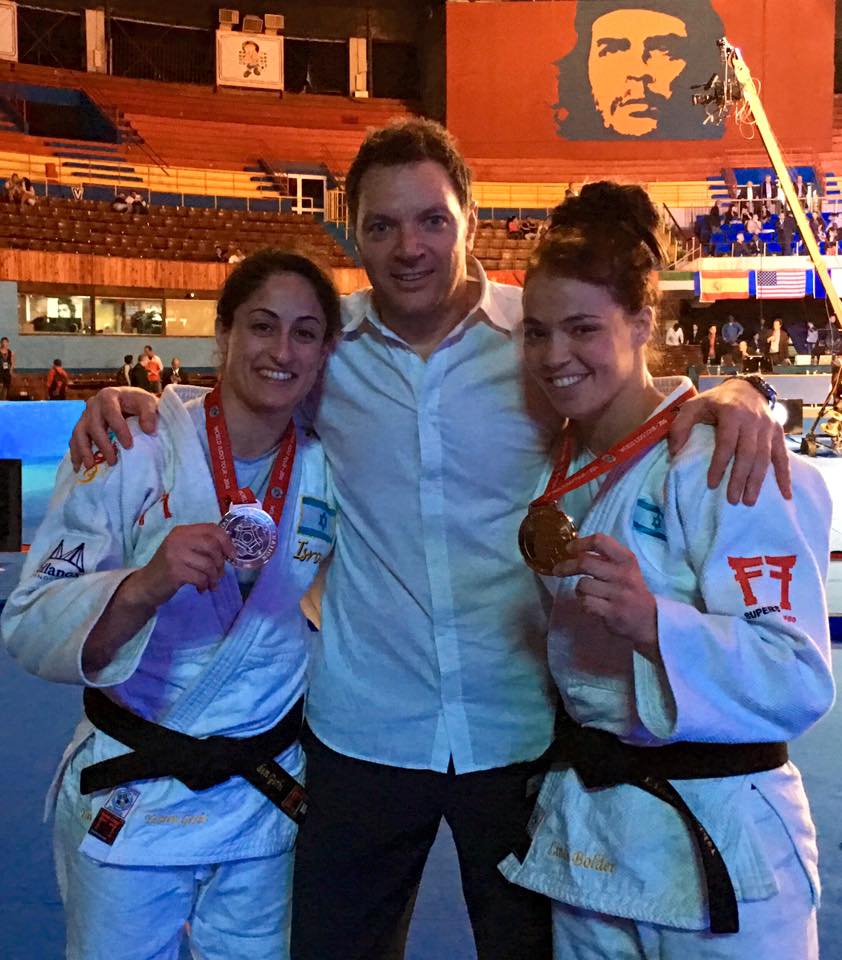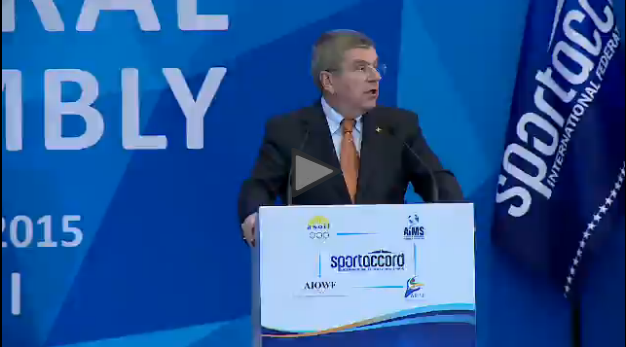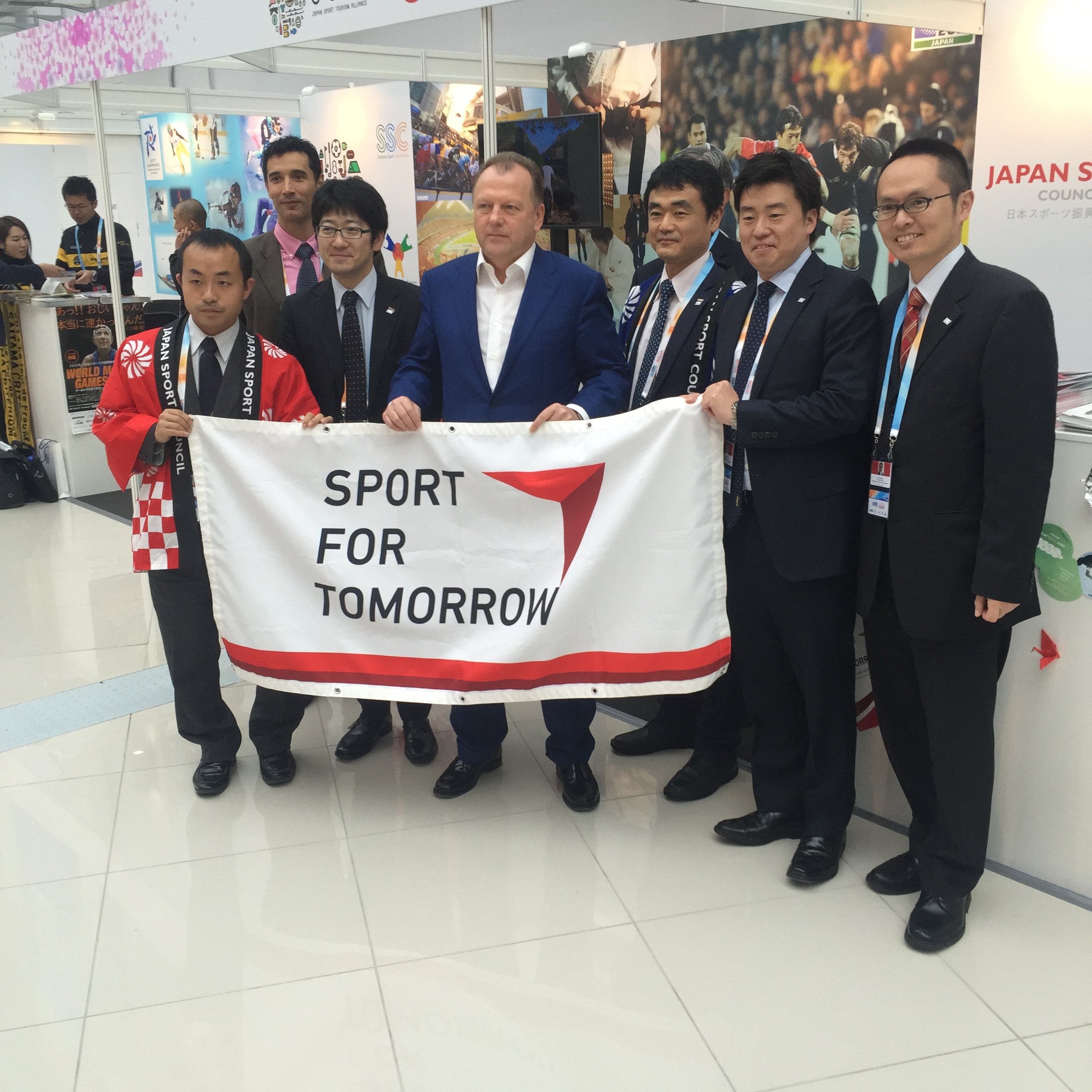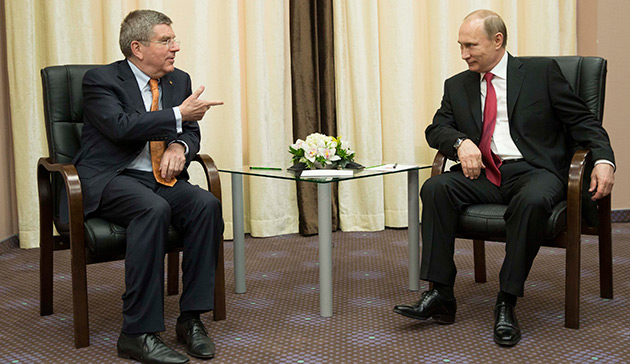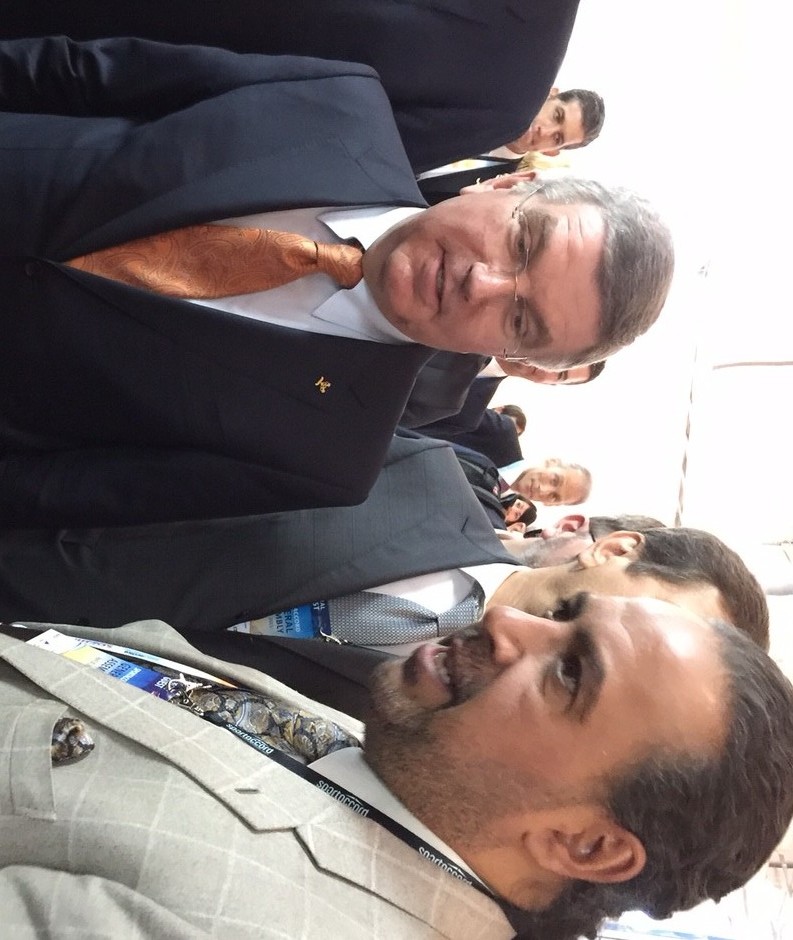The campaign for the 2024 (and, maybe, 2028) Summer Olympic Games moves this coming week into its next phase. It’s a carefully structured, overly programmed, International Olympic Committee-directed 10-minute road show. That is, both Los Angeles and Paris officials get 10 minutes (apiece) to present to the 20 or so IOC members due to be in attendance at a sports convention on the eastern coast of Denmark’s Jutland peninsula.
That far to travel for that little time and, moreover, to an audience that isn’t even one-quarter of the voting IOC membership? That is not anywhere near, to use a favorite IOC phrase, best practice.
Indeed, the whole IOC bid and campaign machinery — theory, structure, implementation — needs a thorough re-do.
For years, the IOC has sought to use the “evaluation” process as a means to have cities sell the IOC on their (that is, the cities’) merits.
That process needs to be flipped.
The IOC ought — better yet, needs, and better still, needs right now — to be asking, what are our (that is, the IOC’s) needs and what city can best fulfill our (again, IOC) needs?
It is patently clear to a significant cohort of Olympic watchers -- and some insiders, too -- that the bid process is broken and thus the IOC has arrived at a junction that spells crisis. Change must be effected.
The $51 billion questions on the table are whether senior IOC leadership as well as the rank-and-file members a) recognize the gravity of the problem and b) will respond.
It is worth noting that it was in the bid context -- see Salt Lake City, late 1990s -- that the IOC suffered its most existential threat. Until, perhaps and again, now.
As a result of the Salt Lake scandal, the IOC enacted a 50-point reform program.
Fast forward to a conference a few days ago in London. There, the former IOC marketing director Michael Payne called the bid process — as it is now — “toxic.”
Here, in a nutshell, is why:
The Barcelona 1992 Summer Games made presidents, prime ministers, governors and mayors everywhere believe that the glow from an Olympics could similarly jump-start their own government-funded infrastructure projects.
The Games come with a fixed seven-year deadline. That means stuff has to get done — airports, metro, light rail and sewer lines and more.
That deadline, in practice, has also produced ridiculous cost overruns.
Sochi: that reported $51 billion. Beijing: $40 billion. Rio: probably $20 billion. London: $15 billion. Tokyo: bid projected at $7.8 billion, now maybe $15 billion, who knows. Athens: $11-15 billion.
Over the past two, maybe three, years, the spiral of media— and in particular social media— reports have come back to bite the IOC in the backside.
As this space pointed out in a March 3 column and as Payne noted in his speech last Wednesday, the ever-increasing import of social media means community activists can leverage virtually any local grievance and turn it into as, he said, a debate “about whether to stage an event” such as the Olympics.
That’s what brought down the Budapest 2024 bid just weeks ago. And before that the Hamburg 2024 bid.
The Los Angeles 2024 effort — the bid and, if it succeeds, a Games — is privately financed. Just like 1984. This is the key difference between the LA effort and just about every other Summer Olympics since the IOC got itself into the jam it now finds itself in.
And it unequivocally is in that jam.
The irrefutable evidence:
For public consumption, the IOC is essentially just letting the road show and evaluation process play itself out. Behind the curtains, it is trying to figure out how to cut a 2024/2028 deal between the last two cities standing, LA and Paris.
When the history of all this gets formally written, this note: this space was the first to suggest this very thing — the 24/28 LA/Paris double-double. Look it up: September 15, 2016. (Also predicted in that very column: Budapest would fall out via referendum.)
The Denmark road show is being held for the benefit of the international sports federations. Two years ago, this very same sports convention was under the leadership of the judo federation president, Marius Vizer, who was at odds with IOC president Thomas Bach, and no 2022 Winter Games bid-city presentations were allowed, purportedly to cut the cost of bidding as part of Bach's Agenda 2020 would-be reform push.
For the past year, the federations have had a new guy in charge, Patrick Baumann, from basketball. Now Paris and LA get to present. It also happens that as of a few weeks ago Baumann is also the head of the 2024 IOC evaluation team. No criticism should be implied or inferred of Baumann (like Vizer, a very smart guy) or the way he ended up leading that evaluation team (long back story) — the point is, how can the Agenda 2020 reforms look anything like but what real life has proven them to be, hollow?
Back, of course, to the point of the bid process: personality politics cannot be the basis for a billion-dollar decision. That’s just basic.
Similarly, it makes little or no sense to cater to the sports federation officials. Unless he or she is also an IOC member -- they don't vote.
The IOC has a distinct credibility problem. A key reason is that it is perceived, appropriately, as the establishment, particularly in Europe, where taxpayers are mightily angered at the spending of their euros on what they perceive, rightly or wrongly, as Olympic waste.
So: essentially forcing a bunch of folks to jet into Denmark for two 10-minute presentations? Just to feed the egos of international sports federation leaders? And then everyone goes out to the lobby for snacks and cocktails?
There is a much better way.
The IOC needs to reverse the paradigm.
The IOC should not be asking whether (pick one, A, B or C) the archery or badminton or canoeing president likes city x's pretty video.
Again, no vote unless an IOC member and, besides, that's in line with this theme — which city can impress us most?
In turn, that leads to this kind of question: city x, why is it important to your redevelopment strategy to build an athletes’ village that you have already budgeted at some billion-dollar obscenity that we nonetheless know, because history says so, is laughably low?
The IOC is not a redevelopment agency. It is not an urban planner. It is about sport. That is what the Olympic Charter makes plain, time and again. Sport. In the service of humankind.
To that end, the IOC should be asking, what is your detailed strategy to connect with athletes and other young people, and not just in your country? Don’t bore us to death with school programs. Tell us about connection and engagement. Tell us something innovative, creative and exciting.
More:
Right now, the IOC produces a fat evaluation report filled with answers to questions such as the number of hotel rooms in city x or its airport capacity. These questions are relevant. But they are relevant mostly to IOC staff. This next sentence is critical: the staff does not vote.
This logically produces a huge disconnect in the evaluation and thus the bid and the election process. Why?
Because the members largely do not care.
Again, on issues such as the whether it's the Westin or the Hyatt or runway 26-left or 18-right, the members mostly do not read these reports. So this entire evaluation process, which after Salt Lake is supposed to form the underpinning for the most important decision the members make, is a colossal waste of time, money and resource.
Better:
The IOC should lead a focused inquiry that determines which city is most likely to:
— engage young people, with a detailed plan for how, and in particular on mobile platforms and across social media
— produce not just moments but heroes to inspire those young people across seven years, to and through opening ceremony and the 17 days of the Games, if not beyond
— take a leadership role across the Olympic and broader political landscapes by demonstrating transparent fiscal stewardship, responsibility and stability in all budgets related to the production of a Games
— voluntarily submit all such budgets to scrutiny by internationally accepted accounting experts, those reports routinely to be made matters of public record
— stabilize if not energize the Olympic movement in the host nation and around the world
— spark sponsor and audience interest domestically and internationally
If the IOC did that for 2024, there would be only one conclusion. It would be so easy. Crisis solved.




